
The Samsung Galaxy Tab S10 Ultra ($1,199 to start) is the latest and greatest slate Samsung has released in 2024, not to mention the biggest.
But at this point that's no surprise, since Samsung has been releasing super-sized Ultra tablets since it debuted the Galaxy Tab S8 Ultra in 2022. This is the third iteration of Samsung's massive Ultra slate, and while the 14.6-inch AMOLED display remains the star of the show there's a new MediaTek Dimensity 9300+ chip under the hood providing a much-needed speed boost.
Unfortunately, that's basically the only notable upgrade in this 2024 Ultra, and while the speed is nice it can't compare to the power of Apple's latest iPad Pro M4. So while this isn't the best tablet released this year, it is one of the best Android tablets you can buy if you want a laptop replacement or just the most ginormous screen possible.
Samsung Galaxy Tab S10 Ultra review: Cheat sheet
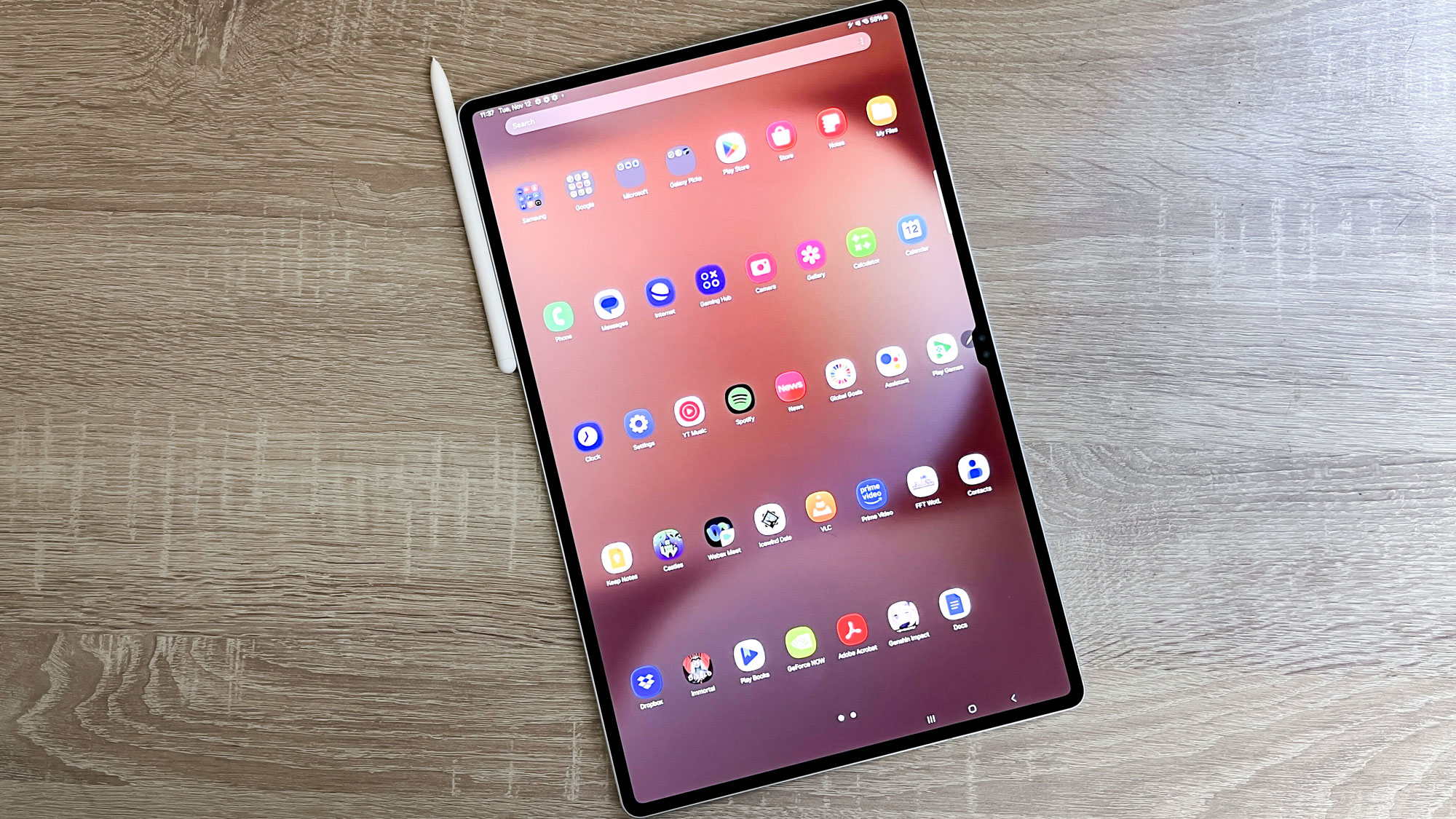
- What is it? As the name suggest, the Samsung Galaxy Tab S10 Ultra is the biggest, most expensive tablet in Samsung's Galaxy Tab S10 family of slates.
- What does it cost? $1,199 to start via Samsung's website, though the price rises if you upgrade the Samsung Galaxy Tab S10 Ultra and falls if you take advantage of Samsung's trade-in deals.
- Who is it for? Anyone who wants a top-of-the-line $1,200+ Android tablet with a nearly 15-inch AMOLED screen. It's well-suited for watching movies and using as a laptop replacement.
- What do we like? The big, lovely AMOLED display, the speedy performance that can run any app in the Google Play Store and the packed-in stylus.
- What don’t we like? The size of this tablet makes it a bit unwieldy to use, even with both hands.
Samsung Galaxy Tab S10 Ultra review: Specs
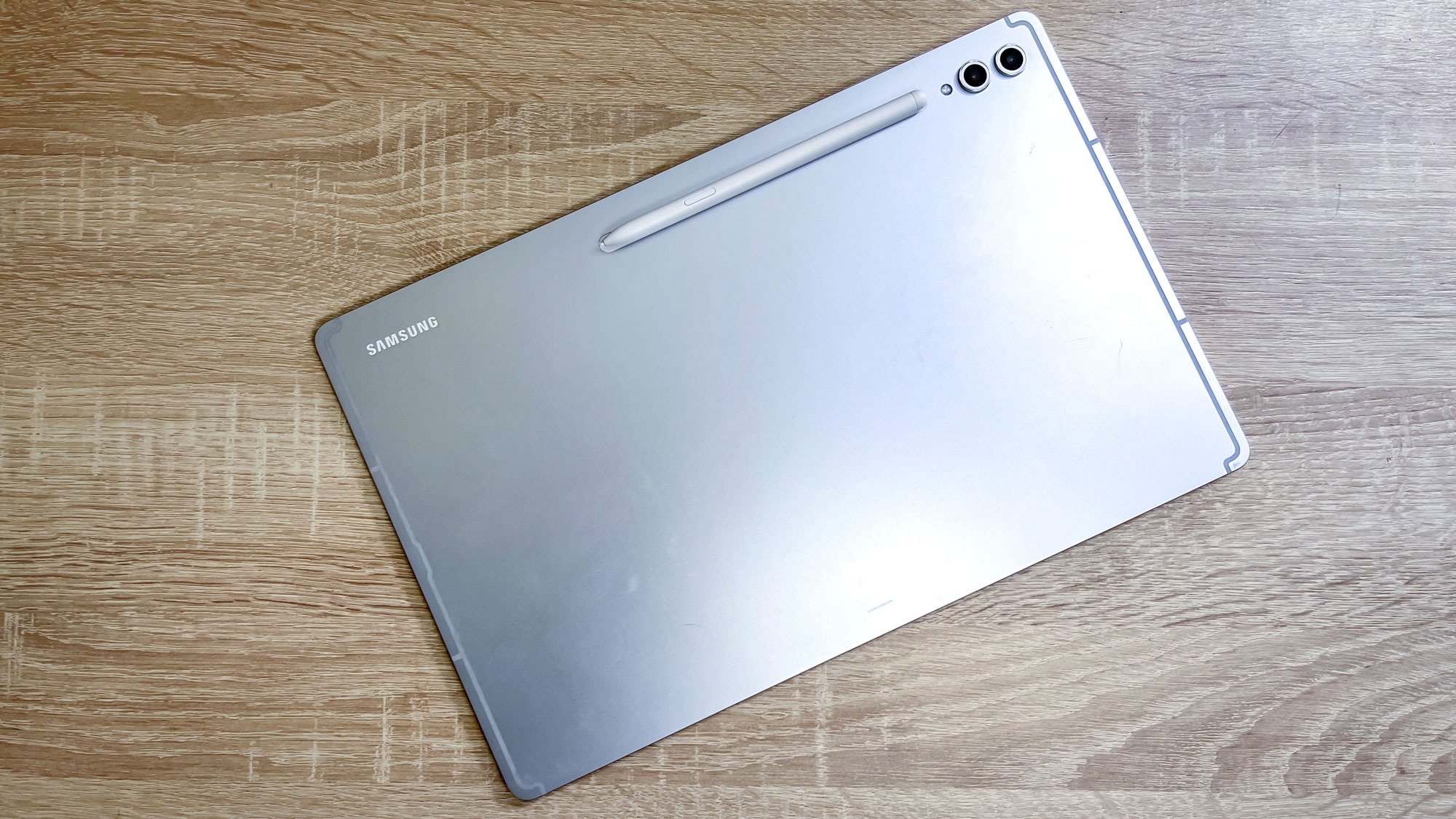
Samsung Galaxy Tab S10 Ultra review: The ups
I like the Samsung Galaxy Tab S10 Ultra because it feels like a big, premium Android tablet with an eye-catching AMOLED display. Here are a few specific things I love about this slate.
Big AMOLED display makes everything look great
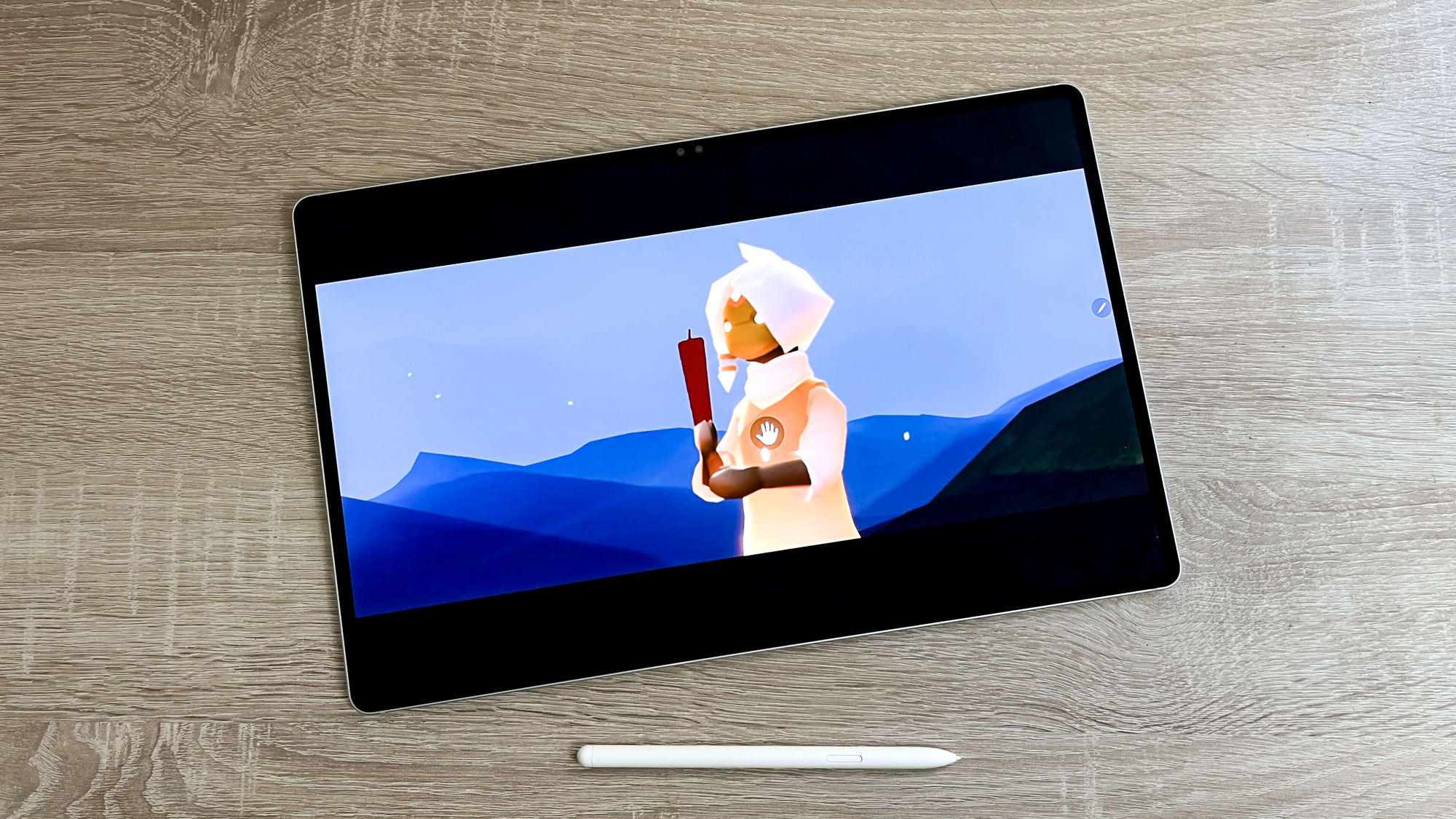
I love a good OLED screen, so the 14.6-inch AMOLED display on the Samsung Galaxy Tab S10 Ultra is one of the things I adore most about it. I'm happy Samsung has put such a good screen on this slate because it's huge and 99% display, so you'll spend all your time looking at what you spent your money on.
I know because I spent hours playing games and streaming movies on this slate, and the colors really pop with lots of nice contrasts between lights and darks.
While I sometimes grew frustrated with the way fingerprints show up on the screen quite easily, it's easy to wipe them off with a cleaning cloth whenever they begin to irritate you.
When we brought our Samsung Galaxy Tab S10 Ultra review unit into our testing lab and pointed our instruments at it, we discovered this slate is capable getting decently bright, peaking at roughly 775 nits when viewing HDR content.

It's also capable of good color reproduction, and proved better at covering the more demanding DCI-P3 color gamut than either Apple's new iPad Pro M4 or the OnePlus Pad 2.
However, Apple's iPad Pro M4 with its Tandem OLED display is capable of getting far brighter than the Galaxy Tab S10 Ultra. So if a bright screen is the most important thing to look for in a tablet, the Ultra is fine but Apple's Pro slate can get far brighter for nearly the same price.
Under-the-hood upgrade helps this slate feel speedy
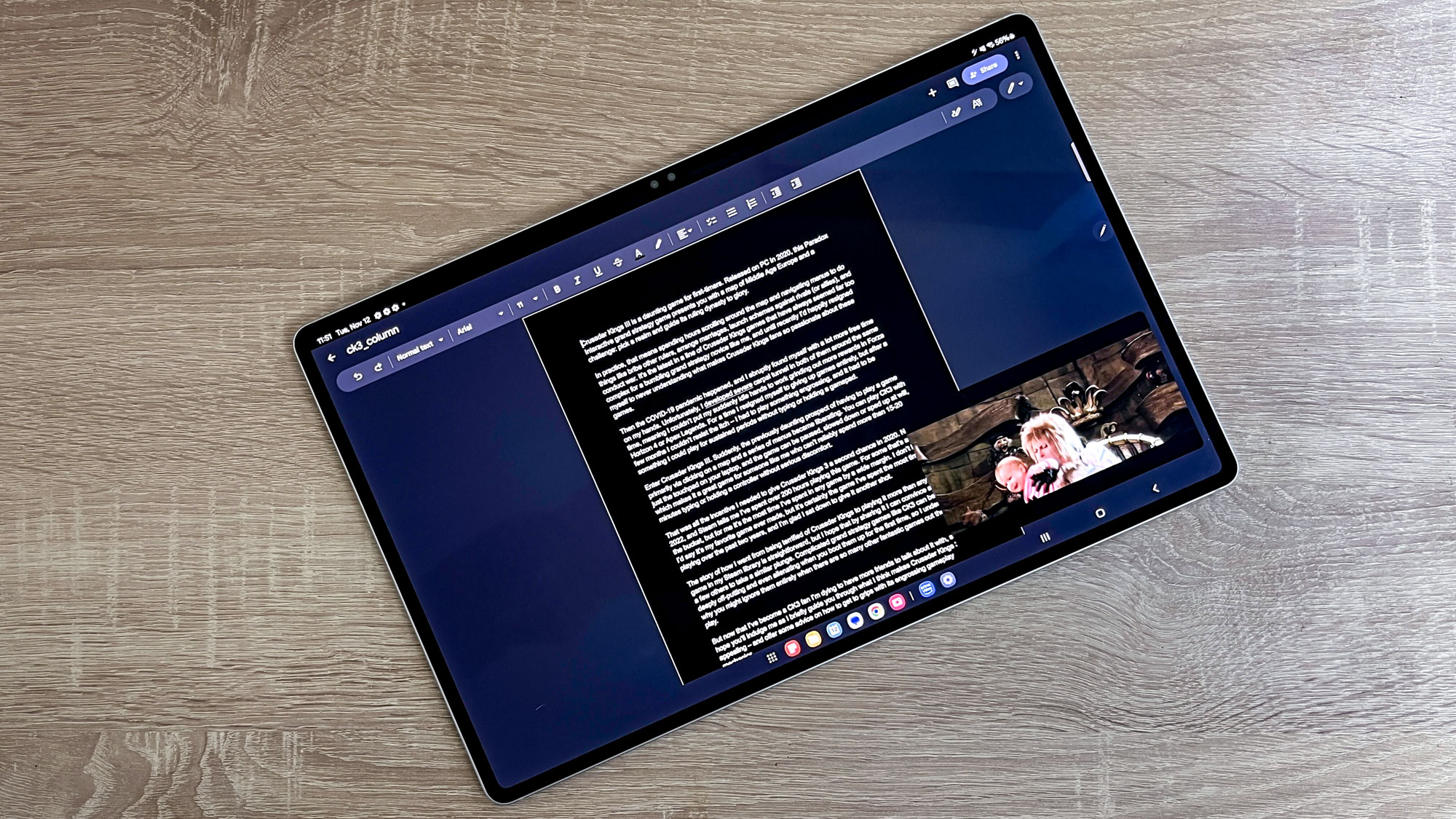
The Samsung Galaxy Tab S10 Ultra runs on a MediaTek Dimensity 9300+ SoC, which is a bit of an upgrade from the Qualcomm Snapdragon 8 Gen 2 which powered its predecessor.
It's plenty fast enough to run most any app you can pull from the Google Play Store at good to great framerates, and I had a good time playing games, watching movies and multitasking between apps on the S10 Ultra without noticing any major lag or slowdown.
I really like how snappy and fast the Galaxy Tab S10 Ultra feels, and I do think it's one of the high points of splurging on this expensive slate. However, when we got the S10 Ultra into our testing lab and ran in through some benchmarking utilities we saw that while it performs well, it can't keep pace with Apple's top-tier iPad Pro M4.
We run all tablets we test through a gauntlet of tests, and the chart of results above shows you a rundown of how the Samsung Galaxy Tab S10 Ultra scored versus the iPad Pro M4 and OnePlus Pad 2. These benchmarks assign scores to a tablet based on how well it performs: we use Geekbench 6 to test a tablet's CPU capabilities, and 3DMark to test its graphical output.
As you can see, the Samsung Galaxy Tab S10 Ultra is neck-and-neck with the One Plus Pad 2 when it comes to single-core and multi-core CPU performance, though the OnePlus Pad 2 falls into last place when it comes to graphical performance.
But in every test, Apple's iPad Pro M4 blows both Android tablets out of the water. The M4 chip is simply faster and better, so if pure performance is all you care about the S10 Ultra is clearly not the best tablet for you.
Packed-in stylus is a welcome touch
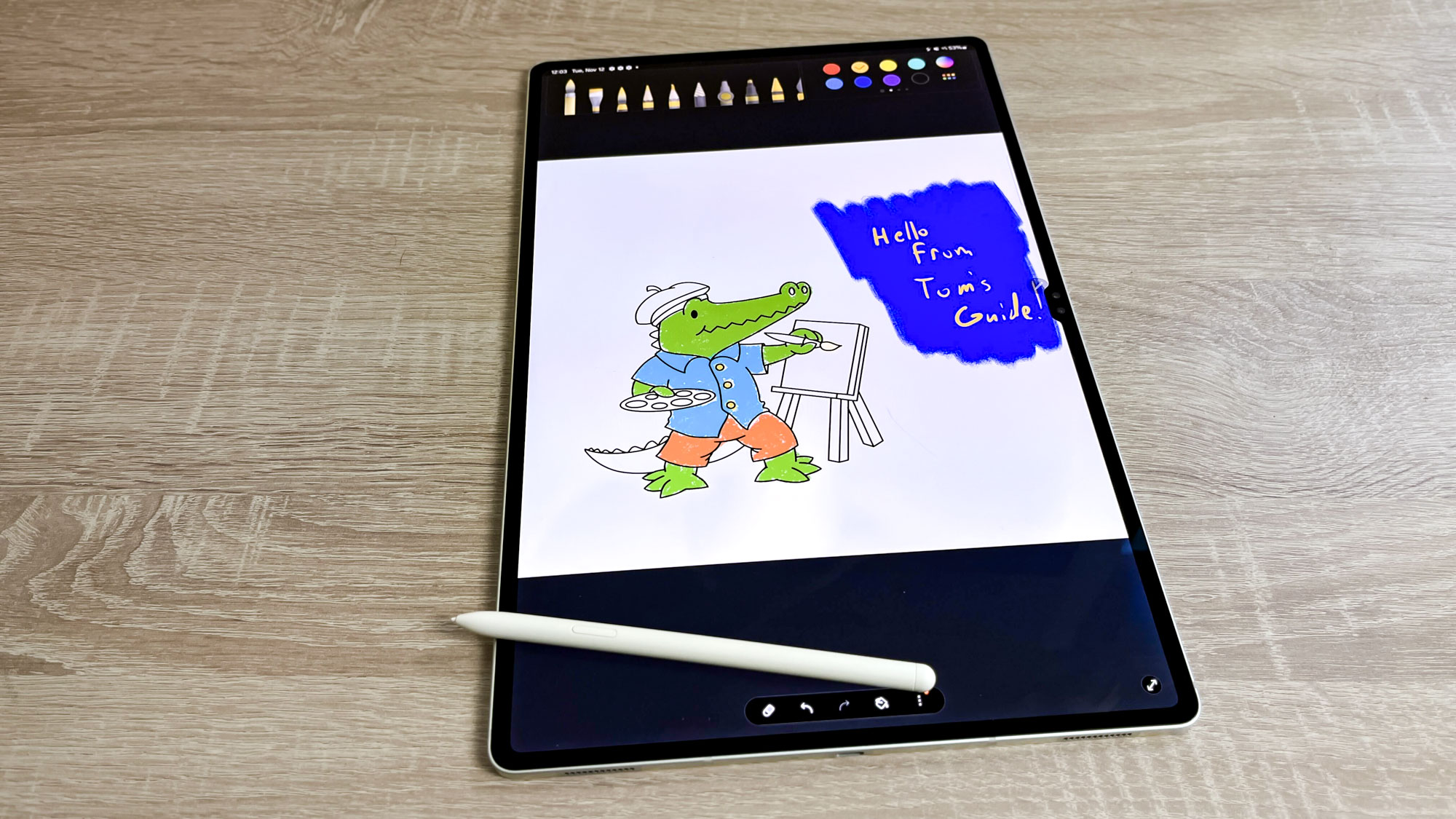
Maybe it seems like a minor detail when you're looking at spending over $1,000 on a new tablet, but I love that Samsung includes a stylus for free with every Galaxy Tab S10 Ultra.
Apple doesn't give you the same courtesy, and I think that's a real failing because getting a tablet with a stylus included gives you permission to immediately start using it as a content creation device. Sure, you can use your fingers to draw or paint on a tablet, but I find it feels inaccurate and no fun at all.
But with the Samsung Galaxy Tab S10 Ultra, you can immediately start taking notes, annotating papers and doodling notes in the margins. The stylus also snaps magnetically to the tablet, either on the edge or on the rear, making it pretty easy to keep track of when you're moving around.
Samsung Galaxy Tab S10 Ultra review: The downs
While I love the Samsung Galaxy Tab S10 Ultra for its sheer size and audacity, there are some downsides you should know about before you buy.
This is an awkward tablet for all but the biggest hands
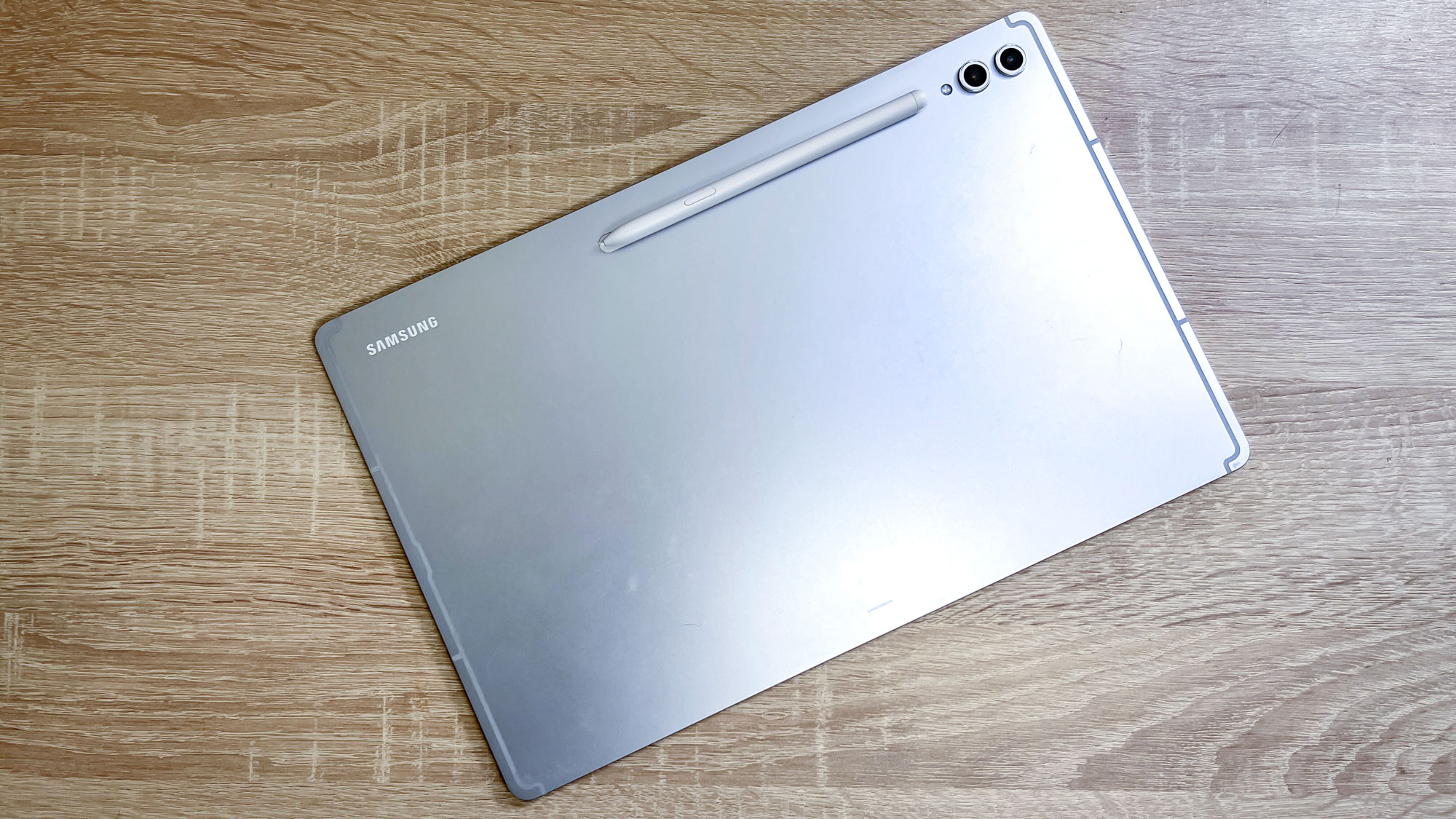
I'm 6'4" tall with big hands, and even I find the Samsung Galaxy Tab S10 Ultra a little frustrating to use as a tablet because of its sheer size.
Don't get me wrong, it's amazing that you can hold this 14.6-inch AMOLED tablet in your hands and carry it around like a portable screen that opens up onto the Internet. The screen size takes some getting used to, but once you do you'll find yourself squinting at all your other mobile devices.
But even I basically have to use this thing propped up on a pillow, a couch arm or something else to help me manage the weight. Sure, 1.58 pounds doesn't sound like much, but it's really the awkward size of the tablet that makes it feel so burdensome. you can hold it with both hands for a few minutes, but trying to hang onto it while watching an episode of your favorite show or playing your favorite games can be a real pain.
Unfortunately, the only good permanent solution to this problem is to buy a nice case that comes with a built-in kickstand or something else you can use to prop the tablet up when you're tired of holding it.
Costs the same/more as iPad Pro M4, performs worse
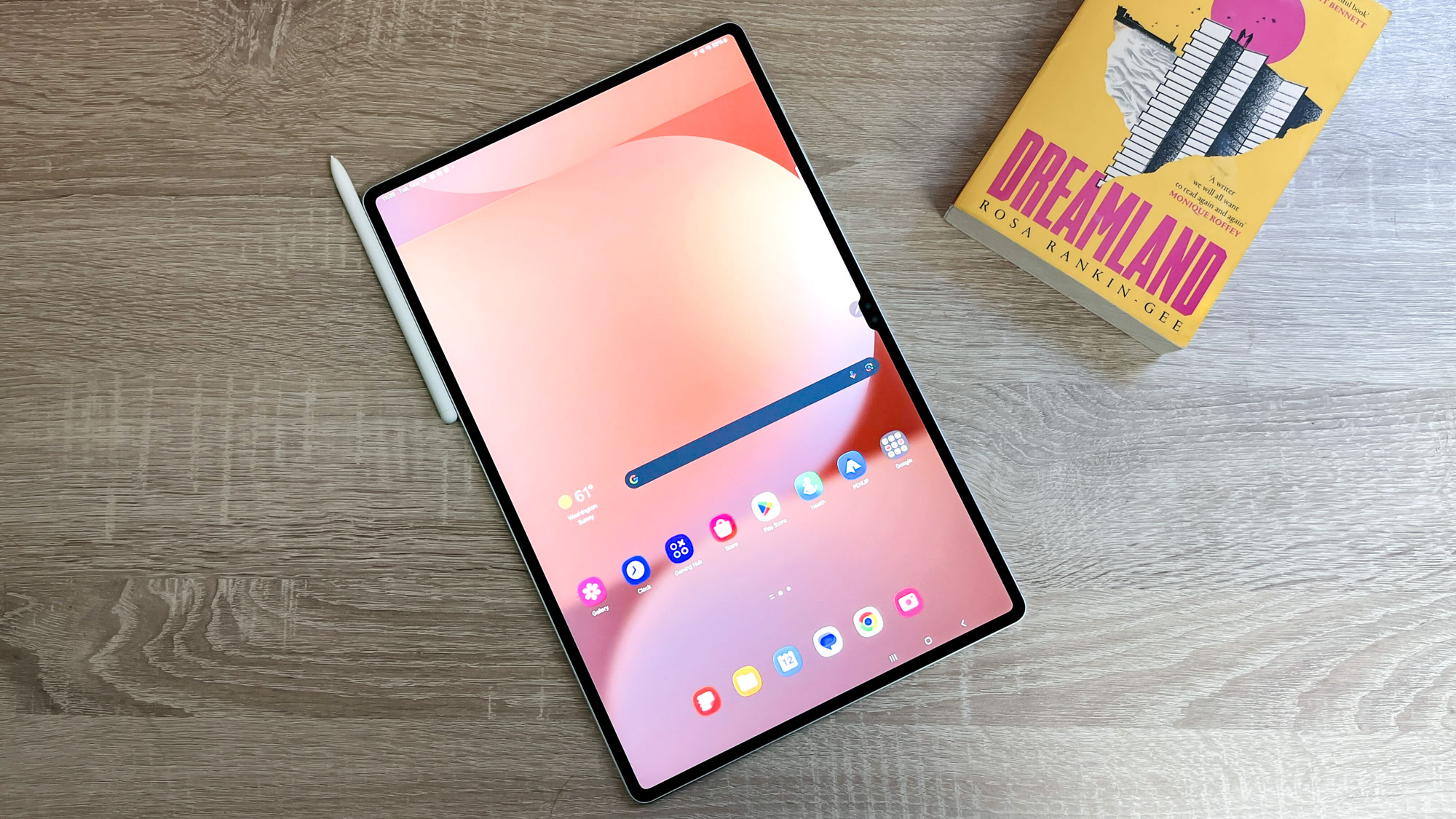
As much as I like the Samsung Galaxy Tab S10 Ultra, I have to say that it's really hard to recommend over the iPad Pro M4 if you're open to using Apple's tablets.
That was less true in years past, when Samsung's Ultra tablets sported AMOLED displays while Apple's iPads all had LCD screens. When that was true you could buy a Samsung tablet and feel like even if you weren't getting iPad speeds or apps, you were getting a nicer display that made everything look better than it would on an iPad.
But now the iPad Pro M4 comes with a Tandem OLED display that gets brighter and more colorful than the Galaxy Tab S10 Ultra, so Samsung's slates have lost their OLED advantage. On top of that, the M4 chip drives the latest iPad Pro to greater heights of performance and better battery life than the Samsung Galaxy Tab S10 Ultra (the Pro M4 lasted 13:13 in our testing, while the S10 Ultra lasted just 9:22), and there's no reason not to choose an iPad Pro M4 if you're not tied to Google's app ecosystem.
Factor in the fact that the entry-level 11-inch iPad Pro M4 starts at $999, while the 13-inch model starts just over the S10 Ultra at $1,299, and you can see why I think it sucks that the S10 Ultra can't match the performance or power efficiency of the M4 chip.
Samsung Galaxy Tab S10 Ultra review: Verdict
If you've made it this far you know the Samsung Galaxy Tab S10 Ultra is the latest edition of the biggest Android tablet you can buy from Samsung right now, and it looks great and feels snappy.
It's marketed as a laptop replacement, and I've used it that way myself while working in both standard mode and DeX mode. Both are doable, and in the wake of Android 14 landing I think there's never been a better time to own an Android tablet. If you need one with a massive screen, either for enjoying movies like a king or getting work done on the road, this is a great choice.
But like I said, Apple's M4 chip is just plain better than what the Samsung Galaxy Tab S10 Ultra is packing under the hood. So while the S10 Ultra is easily among the best Samsung tablets you can buy right now, those open to Apple's ways might be happier spending that money on an iPad Pro M4.







